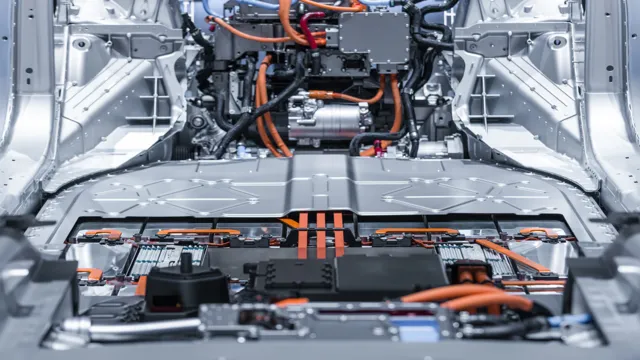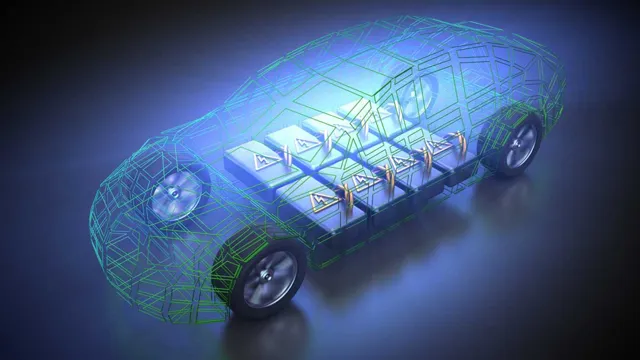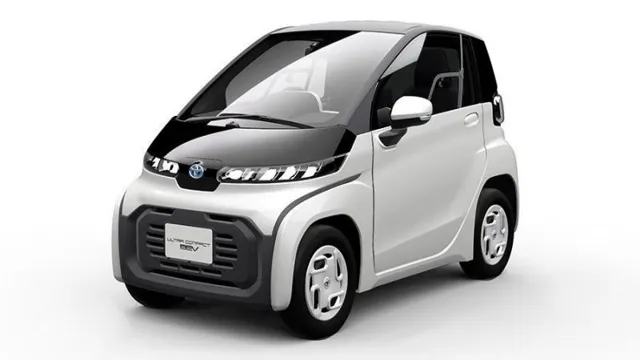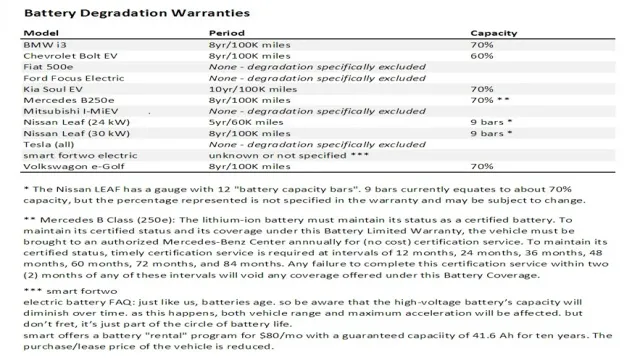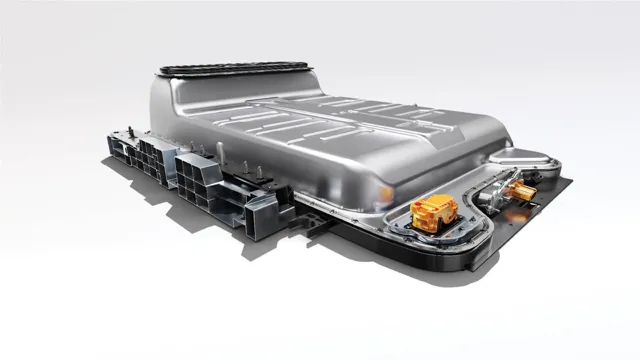Revving Up Your Ride: Exploring the Best Electric Car Battery Technology
Electric cars continue to grow in popularity as people become more environmentally conscious and seek fuel-efficient modes of transportation. However, the success of these cars still hinges on their battery technology. In fact, the car battery is often considered the heart of the electric vehicle, as it powers the entire system.
Finding a reliable and efficient car battery is essential for both drivers and manufacturers. In this blog, we will explore the best car battery technology for electric vehicles, discussing the different types, their features, and what makes them stand out. Whether you are an electric car enthusiast or someone curious about the technology behind it, this blog is for you.
Introduction to Electric Car Batteries
The electric car market has been booming in recent years, and with that comes advancements in technology, particularly in the realm of car batteries. The best car battery technology for electric vehicles, in particular, is lithium-ion batteries. These batteries have a higher energy density than traditional lead-acid batteries, which means they can store more energy in a smaller package.
Additionally, they have a longer lifespan and are more efficient when it comes to charging and discharging. This makes them the ideal choice for electric cars, as they provide a longer driving range and reduced charging time. As the electric car market continues to grow, we can expect further advancements in battery technology, but for now, lithium-ion batteries remain the top choice.
Advantages and Disadvantages of Electric Car Batteries
When it comes to electric vehicles, one of the most vital components is the battery. The electric car battery is responsible for powering the vehicle and making it a viable transportation option. There are several advantages of electric car batteries, such as their low carbon footprint and absence of harmful emissions.
Electric car batteries are also much quieter and offer smoother rides when compared to traditional gas vehicles. However, electric car batteries also come with some disadvantages, the most significant being their high cost and limited range. The current technology allows for only a limited number of miles on a single charge, which can be frustrating for drivers who need to travel long distances regularly.
A solution to this problem is to install charging stations at specific locations, but this requires additional funding and infrastructure. Despite its drawbacks, electric car batteries remain a promising prospect for the future of transportation, and as technology continues to improve, we can expect them to become even more efficient and accessible for everyday use.
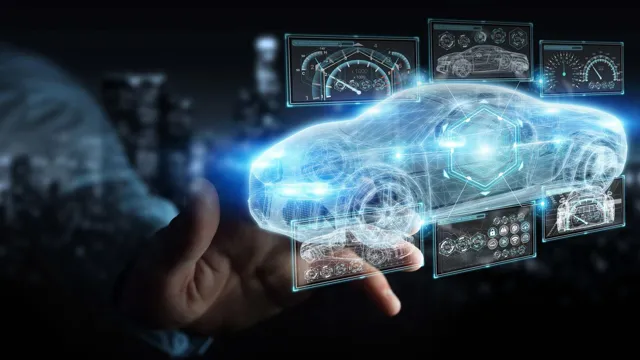
Types of Electric Car Batteries
Electric Car Batteries Electric cars are rapidly becoming more prominent in the automotive industry, and one of the most important components that make them functional is the battery. Electric car batteries are rechargeable devices that provide power to the car’s electric motor. There are several types of electric car batteries commonly used in modern electric vehicles.
These include lithium-ion, lead-acid, nickel-cadmium, and solid-state batteries. Lithium-ion batteries are the most widely used type of electric vehicle battery, offering high energy density and long life. Lead-acid batteries are the oldest and most common type of battery, but their usage is limited due to their low energy density and short lifespan.
Nickel-cadmium batteries are being phased out due to their toxic effects while solid-state batteries are a promising technology that is still being developed. Regardless of the type of battery, electric cars provide a sustainable and eco-friendly alternative to traditional gas-powered vehicles.
Lithium-Ion Batteries in Electric Cars
Lithium-ion batteries are becoming the go-to technology for electric cars as they provide the best balance between performance and efficiency. These batteries use electrodes made of lithium compounds to power the car’s electric motor. Lithium-ion batteries have higher energy density and can produce more power than other battery types.
This means that electric cars can have a longer range and quicker acceleration with these batteries. They are also lightweight, making them ideal for use in vehicles. However, lithium-ion batteries can be expensive, and their lifespan depends on how they are used and maintained.
Despite this, they remain one of the best car battery technologies for electric cars, and as technology improves, they will become even more efficient and cost-effective for consumers.
Benefits of Lithium-Ion Batteries
Lithium-ion batteries are quickly becoming the go-to power source for electric cars, and it’s easy to see why. These batteries offer a range of benefits, including faster charging times, longer lifespans, and higher energy density than their traditional counterparts. One of the biggest advantages of lithium-ion batteries in electric cars is their ability to provide consistent power over long distances, allowing drivers to travel further without having to stop and recharge as frequently.
Additionally, the compact nature of these batteries allows for improved weight distribution, making them an ideal choice for use in electric vehicles. With more and more car manufacturers investing in lithium-ion battery technology, we can expect to see even greater advancements in the electric car industry in the years to come.
Drawbacks of Lithium-Ion Batteries
Lithium-ion batteries have become the go-to power source for electric cars due to their high energy density and long lifespan. However, there are still some drawbacks that need to be considered when it comes to using these batteries in electric cars. One major issue is the limited range of these batteries, which can be a significant disadvantage for those who need to travel long distances.
Additionally, lithium-ion batteries can be prone to overheating, which can not only affect their lifespan but also pose a safety risk. There is also the issue of cost, as these batteries can be quite expensive to manufacture and replace. As electric cars become more popular, it’s likely that these issues will be addressed and improved upon, but for now, it is something that needs to be taken into consideration when choosing the right battery for your electric car.
Top Lithium-Ion Battery Brands for Electric Cars
Lithium-ion batteries are the driving force behind electric cars, powering the vehicle by storing and releasing energy as needed. There are several top brands of lithium-ion batteries that are widely used in the electric car industry. Tesla, for example, utilizes its own proprietary lithium-ion batteries that are manufactured by Panasonic.
Other popular brands of lithium-ion batteries include LG Chem, Samsung SDI, and BYD. Each brand has its own unique features and capabilities, and choosing the right one is crucial when building an electric car. Factors like energy density, safety, and cost are all taken into consideration when selecting a lithium-ion battery brand for electric cars.
Nonetheless, what remains a fact is that the use of lithium-ion batteries in the automotive industry has revolutionized the future of transportation, providing a more sustainable and eco-friendly solution for drivers and the environment alike.
Solid-State Batteries in Electric Cars
As electric cars become increasingly popular, more attention is being given to the best car battery technology for them. Solid-state batteries are emerging as a promising solution to the limitations of current lithium-ion batteries. These batteries use solid electrolytes instead of liquid ones, making them safer, more energy-dense, and longer-lasting.
Solid-state batteries could increase driving range, reduce charging times, and improve the overall longevity of electric cars. In addition, they are also better for the environment because they eliminate the need for rare and toxic materials used in traditional batteries. Though they are still in the prototype phase, solid-state batteries could revolutionize the electric car industry and substantially improve the driving experience for users.
Benefits of Solid-State Batteries
Solid-state batteries are an emerging technology that promises significant advantages over traditional lithium-ion batteries in electric cars. These batteries use a solid electrolyte instead of a liquid electrolyte, which makes them safer and more stable. This addresses one of the main concerns of lithium-ion batteries, which can catch fire if damaged or overcharged.
Solid-state batteries can also offer a higher energy density than lithium-ion batteries, which means they can store more energy per unit volume. This translates to longer driving ranges for electric cars without sacrificing performance or safety. Additionally, solid-state batteries have a longer lifespan and can be charged more quickly than lithium-ion batteries.
While solid-state batteries are still in the development stage, they have the potential to revolutionize the electric car industry and make electric cars more accessible to the masses.
Drawbacks of Solid-State Batteries
Solid-state batteries have long been touted as the potential future of electric vehicles, promising improved energy density, longer range, and faster charging times. However, there are also potential drawbacks to using these types of batteries in electric cars. For one, the manufacturing process for solid-state batteries is still in its infancy, making production costly and time-consuming.
Additionally, achieving reliable thermal management for solid-state batteries presents a significant challenge, as they are inherently less thermally conductive than their liquid counterparts. Moreover, solid-state batteries are not immune to the issue of dendrite formation, which can cause short circuits and even fires. While these issues have been mitigated to some extent through advancements in materials science and engineering, it is clear that there is still much work to be done before solid-state batteries can become a mainstream solution for electric cars.
Conclusion: Choosing the Best Battery Technology for Your Electric Car
In conclusion, the best car battery technology has shifted from the traditional lead-acid batteries to more efficient and eco-friendly electric batteries. These batteries not only provide a longer lifespan and faster charging times, but they also contribute to a greener future. With electric cars becoming more prevalent, it’s clear that the days of gas-guzzling vehicles are numbered.
So, let’s embrace the electrifying revolution and power up our cars with the latest and greatest in battery technology!”
FAQs
What is the best car battery technology for electric cars?
Lithium-ion battery technology is currently considered the best option for electric cars as they offer higher energy density, longer lifespan, and faster charging times compared to other battery types.
How long do electric car batteries last?
The lifespan of an electric car battery depends on a variety of factors such as usage, temperature, and charging habits. However, modern electric car batteries are generally designed to last for up to 10 years or more.
Can an electric car battery be replaced?
Yes, electric car batteries can be replaced. However, it can be a costly process as batteries are one of the most expensive components of electric cars. It’s important to consider the cost of battery replacement when purchasing an electric car.
What are the benefits of using electric car batteries?
There are several benefits of using electric car batteries, including lower emissions, reduced dependence on fossil fuels, and lower fuel costs. Additionally, electric cars tend to have quieter and smoother driving experiences compared to gas-powered vehicles.

